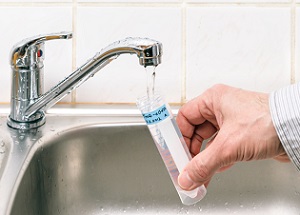
The importance of combining state-of-the-art research with the translation of this work to the community has been an integral component of the Children's Environmental Health and Disease Prevention Research Centers program since its inception by the EPA and NIEHS 15 years ago. Here at the Dartmouth Center we aim to engage a wide range of stakeholders to protect the environmental health and wellbeing of children in a sustainable manner. Key members of our community are the mothers who are participants in our Birth Cohort study, the health care community, and parents. Given our researchers focus on mechanisms and effects of early life exposure to metals, in particular arsenic in food and water, the COTC seeks to explore ways to incorporate these findings into clinical care and public health practice.
Our Partnerships and Projects
The Dartmouth Northern New England Primary Care Cooperative, also known as the "Dartmouth CO-OP".
We are collaborating with this practice based research network of rural primary care practices in New Hampshire, Vermont and Maine. In our current research study, we are working with selected practices in regions where there are a high percentage of families on private water systems to identify best practices for integrating well water testing into routine pediatric preventive care. This involves both education of the parents as well as the health care team on the basics of drinking water safety and testing, with particular emphasis on the regional importance of natural arsenic contamination. Our team's use of GIS mapping of arsenic contamination in relationship to the location of these regional primary care practices has been used to raise awareness of this issue among health care providers and for recruitment of practices to the well water testing study. Results of this study will be disseminated to other regional practitioners.
Our Center was selected as a project site for the "Dali Lab"- a group of talented computer science students and their faculty mentors within the Department of Computer Science at Dartmouth College. Students in the Dali project worked with Dr. Carolyn Murray to bring to life in a digital format the "story" of how arsenic enters our food supply. These undergraduates translated the Center's research findings about sources of arsenic in the diet and converted them to a visually pleasing and interactive format to engage and empower the public, particularly parents.
New Hampshire Birth Cohort Participants
Participants in our birth cohort study that now numbers over 1,200 are a high priority community for our Center. We have been conducting focus groups within the NHBCS. Through these focus groups and future surveys we are seeking input on how best to communicate well water testing results, how best to design educational materials, and to better understand where mothers obtain the environmental health information they use to make decisions about their own health and that of their children. We will then use this information to inform the development of educational resources, both written and web based, to support the informational needs of our stakeholders and provide a platform for our scientists to share their findings.
Vermont Law School Center for Agriculture and Food Systems
This newly created Center in one of this country's premier law schools for Environmental Law underscores the burgeoning interest in food, food policy and the relationship between our food systems and human health. We meet regularly with Center leaders to identify how our scientific findings can help inform their efforts in addressing regulatory initiatives aimed at improving the health and safety of our food supplies. We are both working with the Dartmouth DALI lab (see below) on exciting projects to share our research findings with stakeholders in innovative ways.